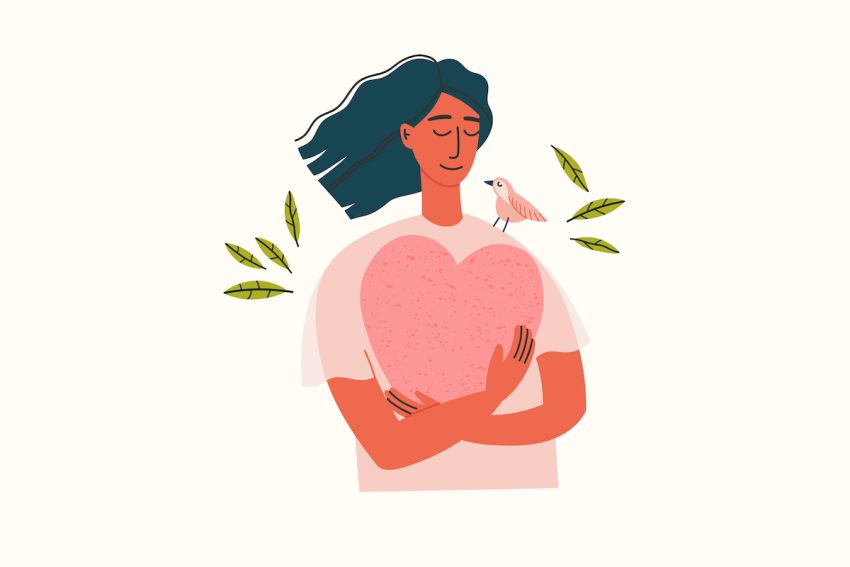1. Take part in an active week
Exercise is essential to a healthy heart. Heart health is dependent on physical activity. For good heart health, the American Heart Association recommends 150 minutes of moderate or 75 minutes vigorous exercise per week. You can walk, run, swim or play sports. Just make sure to get enough active minutes in your week. Find a physical exercise you like and stick to it.
2. Healthy fats are good for you, but avoid the unhealthy ones
What is the difference between fat and weight? But not so fast. Healthy fats are present in many foods. Vegetables, nuts, seeds, and fish contain good fats that can lower the risk of heart disease and raise good cholesterol. Omega-3 fats can help the heart muscle beat at a regular rhythm.
Focus on foods such as fish, avocado, olive oil, and nuts. You can also limit your added fats by reducing the amount of dressings, spreads or sauces you consume, as well as fried food. This is according to Susan Bowerman MS, RD CSSD CSOWM FAND, director of nutrition at Herbalife.
3. Snap out of your sedentary life style
Even if your heart is healthy, prolonged periods of inactivity can be harmful. Sedentary activities include working on the computer, watching TV or reading. Sedentary behaviors may increase the risk of cardiovascular diseases and death.
Get active during your leisure time to avoid prolonged periods of sedentary behavior. Include movement in your daily activities. If you sit at a desk, take frequent breaks and stretch your legs.
For desk-based employees, we recommend standing up for one minute every 30 minutes and taking a 5-minute break to be physically active every hour. Bridget Hill, of Yaypo Wellness & Fitness, says that studies show this can reduce heart disease risk.
4. Avoid second-hand smoke by not smoking
You may know that smoking is bad for your health. But did you also know it can be harmful to your heart? Smoking is believed to be a leading cause of coronary artery disease and heart attacks.
Smoking causes a buildup in arteries of fatty substances, which is the main cause of smoking-related deaths. Secondhand smoke has also been linked to cardiovascular diseases.
5. Get rid of excess weight
Weight gain is a threat to heart health, bringing with it many health risks.
Overweight puts pressure on arterial walls, forcing your heart to work harder. You are also at greater risk of developing other diseases such as atherosclerosis which can lead hypertension, cardiovascular problems, heart attacks, and stroke,” Rebecca Lee, RN, founder of Remedies for Me, says.
According to studies, excess weight in the midsection puts your heart at risk. The risk of heart disease is increased when you have excess belly fat.
6. Portion control is a great way to avoid overeating.
Diet plays a major role in the health of your cardiovascular system. Your diet can support or undermine a healthy heart. Portion control and healthy eating become even more important when you consider that excess eating can lead unhealthy weight gain. This is a major risk for heart health.
Over the last few decades, portions have increased dramatically. Adults now consume 300 calories more per day than in 1985. It is easy to overeat when portions are too large.
7. Catch your Zs
Sleep is vital for your heart’s health. Chris Brantner of SleepZoo explains that deep sleep allows your body to enter periods of lower blood pressure and heart rates.
Sleep is often underestimated as a key to a heart-healthy lifestyle. Brantner says that people who lack sleep are more likely to develop cardiovascular disease, regardless of their age, weight, or smoking habits.
You need to sleep for good health. Not getting enough can be harmful in many ways, including your heart.
Allison Brager is a neuroscientist at Utzy Naturals and specializes in sleep research. She says that sleep helps the body to recover by repairing and replenishing its fuel sources. One of the pioneering sleep studies examined the risks of a heart attacks during daylight saving time. These studies found that springing ahead (potentially losing sleeping) was linked to an increased rate of heart attacks and falling behind (potentially increasing sleep) was linked to a decreased rate of heart attacks.
You can see that getting enough sleep every day is essential for your heart’s health.
8. Cholesterol-friendly foods
Bad cholesterol levels can be harmful to your heart. Limit foods that are high in saturated fats. They can raise your cholesterol. Butter, lard and dairy products with full fat are all examples. Support your diet instead with foods that naturally lower cholesterol.
Bowerman suggests that you fill your plate with foods high in soluble fibre, including beans, sweet potatoes and berries.
9. Harmonize your heart’s health with music
It’s no secret that music helps relieve stress. Did you know that slower music can help lower blood pressure and improve heart rate variability?
Music subconsciously affects mood. Music can be calming and lower blood pressure. “Listening to music at least 30 minutes per day can reduce blood pressure, slow heart rate and reduce anxiety,” says Lee.
10. Maintain your dental health
Heart health is affected by a variety of functions in the body, including those that may seem unrelated. Poor dental hygiene can affect your heart’s health.
According to studies, the bacteria responsible for gum disease increases your risk of developing heart disease. By taking care of your mouth and preventing gum disease, you can also reduce the inflammatory response in the body. Inflammation can lead to a buildup in blood substances that can worsen cardiovascular disease. Don’t forget flossing and brushing at least twice daily.
11. Aromatherapy can help you relax and soothe your heart.
Stress can affect blood pressure, cholesterol and other body functions. Stress can also lead to unhealthy coping behaviors, like drinking and smoking. These can cause further heart damage.
Stress management can help protect your heart. Consider aromatherapy.
Lee says that “French Lavender is a popular scent widely used to relax.” This herb can also help lower your blood pressure and heartbeat. One study showed that aromatherapy using certain essential oils could lower blood pressure.

